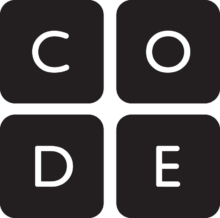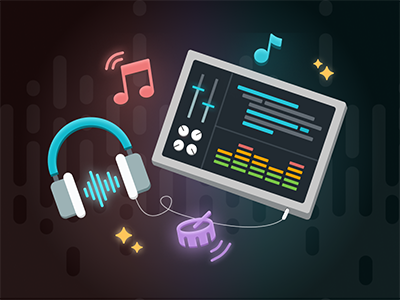Engage Students and Boost Creativity with Coding and Music
Watch the RecordingListen to the Podcast
What role can music play in school success? During the edLeader Panel “Boost Student Creativity and Engagement with Coding and Music,” experts and education leaders, including Alberto Carvalho, Superintendent of Los Angeles Unified School District, showed how the free Music Lab platform can help decrease absenteeism and increase engagement by giving students the opportunity to compose and remix music while learning essential coding and computer science skills.
Code.org’s Music Lab is a free platform where students can compose, produce, and remix music. The platform integrates top artists and content to make learning computer science fun and engaging. “I can tell you firsthand that attendance and student engagement go hand-in-hand with student success in school,” said Dr. James Lane, who is the CEO of PDK International, a longtime educator and superintendent, and an accomplished jazz musician.
Lane noted that prior to the COVID pandemic, eight million students—one in six—missed at least 10 percent of school, and that number doubled to nearly 16 million students in 2021-22. “In almost half of our economically disadvantaged districts, the vast majority, 75 percent of their schools have extreme levels of chronic absence.”
The fifth grade, he said, is when students begin to fall off what he termed the “engagement cliff,” becoming less passionate about school and learning. “And that’s where music and coding can come together to make school more exciting and improve engagement.” He added, “By utilizing the charts from today’s artists, students will be truly engaged and can learn important job and life skills while in school.”
Superintendent Carvalho agreed. “When we talk about creativity, engagement, excitement, joy, and happiness that kids need to feel as part of their educational journey, we need to consider what it takes for them to feel that way,” said the head of the nation’s second-largest school district. “We know kids love creativity. They love to play, they love to be excited, and they love to be stimulated. And for students, the tech world is their world.” He added, “It’s important that all our students are exposed to computer science and coding and see how it applies to real-world situations.”
CEO and Co-founder of Code.org Hadi Partovi said computer science is as foundational as reading, writing, and math, and students, in fact, do better in those subjects when they study computer science. “We’re facing a disengagement problem in schools and students don’t love learning the same curriculum of hundreds of years ago,” he said. “They want something that’s fresh and new. With computer science and coding, and especially with Music Lab, we can teach many of the same types of concepts, but in a format that is much more fun for kids.”
A video demonstration of Music Lab, using Carly Rae Jepsen’s song, “Call Me Maybe,” illustrated how students can create a music project using computer science concepts such as sequencing to play blocks of music together; looping to repeat beats; functions to group commands from different parts of the project, and events, giving students the ability to perform their songs like a producer, resulting in a different musical outcome each time.
Through its Future Engineer program, Amazon has been a longtime partner with Code.org and was instrumental in developing Music Lab. On the Future Engineer website, students can take a virtual career tour called Amazon Music: Careers Behind the Beats, where they can learn how industry leaders use computer science to make music.
Mike Tierney talked about his own journey to becoming Director of Global Programming at Amazon Music. “It started with my passion for music and that gave me a framework for being curious and then for learning,” he said. At Amazon Music, Tierney spearheads the strategic curation and development of music content around the world.
Superintendent Carvalho said educators can also use the Music Lab experience to teach students about responsible digital citizenship. “Have them understand the benefits and their rights, but also some of the challenges and consequences with misuse of assets, rather than having blocks in place or excessively over regulatory protections, which kids more often than not can get around,” he said.
Learn more about this edWeb broadcast, Boost Student Creativity and Engagement with Coding and Music, sponsored by Code.org.
Watch the RecordingListen to the Podcast
Join the Community
STEM Learning: Full STEAM Ahead is a free professional learning community that provides educators a collaborative forum to increase student engagement, creativity, and skills with science, technology, engineering, mathematics, and the arts.
 Code.org® is an education innovation nonprofit dedicated to the vision that every student in every school has the opportunity to learn computer science as part of their core K-12 education. Code.org expands access to computer science in schools, with a focus on increasing participation by young women and students from other underrepresented groups. The leading provider of K-12 computer science curriculum in the largest school districts in the United States, Code.org also organizes the annual Hour of Code campaign, which has engaged more than 15% of all students in the world.
Code.org® is an education innovation nonprofit dedicated to the vision that every student in every school has the opportunity to learn computer science as part of their core K-12 education. Code.org expands access to computer science in schools, with a focus on increasing participation by young women and students from other underrepresented groups. The leading provider of K-12 computer science curriculum in the largest school districts in the United States, Code.org also organizes the annual Hour of Code campaign, which has engaged more than 15% of all students in the world.
Article by Diana St. Lifer, based on this edLeader Panel





Comments are closed.